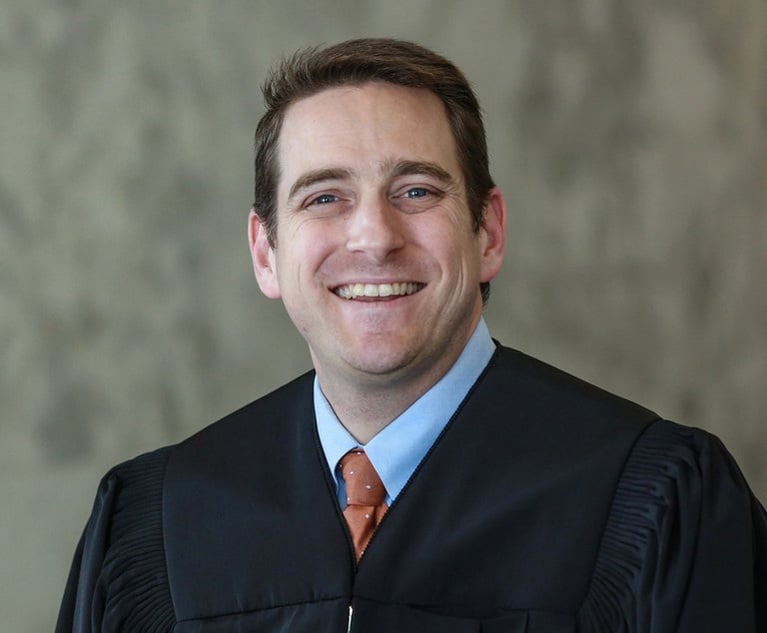'That Is Not True, Sir.' Greg Craig and Prosecutor Face Off During Cross-Examination
Greg Craig's high-stakes testimony marked a pivotal moment in a criminal trial that has provided a behind-the-scenes glimpse of a project that has come back to haunt him and Skadden Arps, his former firm.
August 29, 2019 at 03:01 PM
6 minute read
The original version of this story was published on National Law Journal
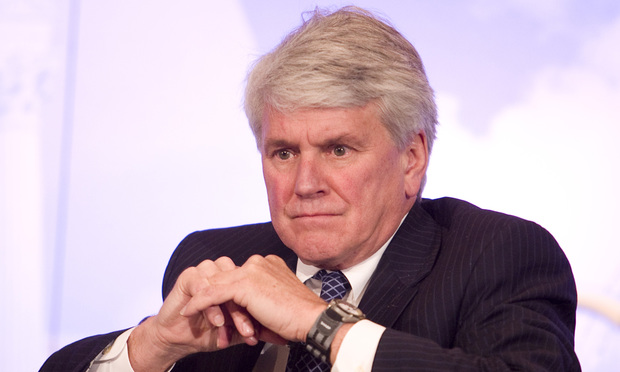 Greg Craig. (Photo: Diego M. Radzinschi / ALM)
Greg Craig. (Photo: Diego M. Radzinschi / ALM)
Greg Craig was grilled Thursday about communications with reporters and the U.S. Justice Department concerning his past legal work for Ukraine, as the prominent Washington lawyer returned to the witness stand to face questioning in his criminal trial.
Craig, who served as the first White House counsel in the Obama administration, had taken the stand the day before and denied that he deliberately deceived the Justice Department about a project he led for Ukraine in 2012 as a partner at the law firm Skadden, Arps, Slate, Meagher & Flom. His high-stakes testimony marked a pivotal moment in a criminal trial that has provided a behind-the scenes, and often unflattering, glimpse of a project that has come back to haunt Craig and his former firm seven years later.
With Craig exposed to cross-examination, prosecutor Fernando Campoamor-Sanchez questioned the venerated Beltway lawyer Wednesday about his involvement in the public release of a report he prepared for Ukraine on the widely criticized prosecution of the country's former prime minister, Yulia Tymoshenko. Prosecutors have alleged that Craig misled the Justice Department about his role in the public relations strategy for the report to skirt the Foreign Agents Registration Act, or FARA, a decades-old law requiring the disclosure of advocacy for overseas governments.
Craig left Skadden last year under a cloud of legal scrutiny. In January, Skadden agreed to pay $4.6 million to resolve allegations it failed to register as a foreign agent in connection with the Ukraine project.
In the three-week trial, prosecutors have portrayed Craig as being more closely involved in the public rollout than he led the Justice Department to believe when it inquired about whether he needed to register as an agent of Ukraine. Prosecutors have argued Craig told the Justice Department he spoke with reporters in December 2012 only to correct mischaracterizations of the Tymoshenko report, when in fact his outreach to the New York Times was called for in the media rollout plan.
Campoamor-Sanchez on Wednesday pointed to an email Craig sent New York Times reporter David Sanger in 2012, telling the journalist that the "Ukrainians have determined that you should be given first look at" the Tymoshenko report. The prosecutor then displayed a letter Craig sent the Justice Department in October 2013, in which he claimed he had sent copies of the Tymoshenko report to Sanger and other journalists "in response to requests from the media."
"That is not true, sir," the prosecutor said Wednesday.
"It is true," Craig said.
"You are now claiming that Mr. Sanger requested the document from you, that you didn't offer it to him first?" Campoamor-Sanchez shot back.
"In my conversation with David Sanger, he asked me to provide him with the report," Craig replied.
"In your email before the conversation you offered him the report, correct?" the prosecutor then asked.
"I said, 'If you're interested, I would make the report available,'" Craig said. "In the telephone conversation that I had with him afterwards, he asked me to provide him with the report."
Campoamor-Sanchez then questioned Craig's claim in the October 2013 letter that Skadden "did not consult with Ukraine, did not inform Ukraine, did not act under instruction from Ukraine and was in no way serving as an agent for Ukraine."
"Sir, you would agree with me, after we just reviewed all these emails before, you did inform Ukraine, right, of what you were doing with Mr. Sanger?" he asked.
In response, Craig said Campoamor-Sanchez had not read the full sentence from the 2013 letter. The full sentence read: "In responding to inaccuracies in U.S. news reports—some of which were directly attributable to Ukraine—the law firm did not consult with Ukraine, did not inform Ukraine, did not act under instruction from Ukraine and was in no way serving as an agent for Ukraine."
Craig said, "I did not run my quotation on the record in the New York Times past anybody from Ukraine."
Craig's case grew out of the Russia investigation led by former Special Counsel Robert S. Muelller III, whose probe of Paul Manafort's past work in Ukraine led to a revisiting of Skadden's responses to the Justice Department unit tasked with enforcing FARA. In 2012, years before he became chairman of the Trump campaign, Manafort was a top adviser to the Russia-aligned Ukrainian President Viktor Yanukovych and played a key role in retaining Craig to review the Tymoshenko prosecution.
Manafort is now serving a more than seven-year sentence on charges related to his years of work in Ukraine.
In his questioning Wednesday, Campoamor-Sanchez pointed to emails from 2012 in which Manafort appeared to praise Craig for his communications with reporters around the release of the Tymoshenko report.
"Greg, the pro has emerged again," Manafort wrote in one email. "Your backgrounding has been key to it all." In another email, Manafort described Craig as "THE MAN."
Craig recalled being confounded by the message from Manafort. In his testimony, Craig stressed that the Tymoshenko report was independent and highly critical of the prosecution. Craig said his dealings with reporters were meant to protect the integrity of his report and counter Ukraine's efforts to spin its findings.
"I thought my backgrounding had been critical of Ukraine," Craig said Wednesday.
Wednesday's court proceedings concluded with Craig's defense lawyer, Zuckerman Spaeder partner William Taylor, underscoring the argument that the former Skadden partner was serving his own interests rather than advancing Ukraine's when he spoke with reporters.
Taylor asked whether Craig charged Ukraine for the time he spent speaking with journalists.
"No," Craig answered, "I was not working for Ukraine at that moment."
With that, the defense rested. Closing statements are expected to begin Tuesday afternoon.
This content has been archived. It is available through our partners, LexisNexis® and Bloomberg Law.
To view this content, please continue to their sites.
Not a Lexis Subscriber?
Subscribe Now
Not a Bloomberg Law Subscriber?
Subscribe Now
NOT FOR REPRINT
© 2025 ALM Global, LLC, All Rights Reserved. Request academic re-use from www.copyright.com. All other uses, submit a request to [email protected]. For more information visit Asset & Logo Licensing.
You Might Like
View All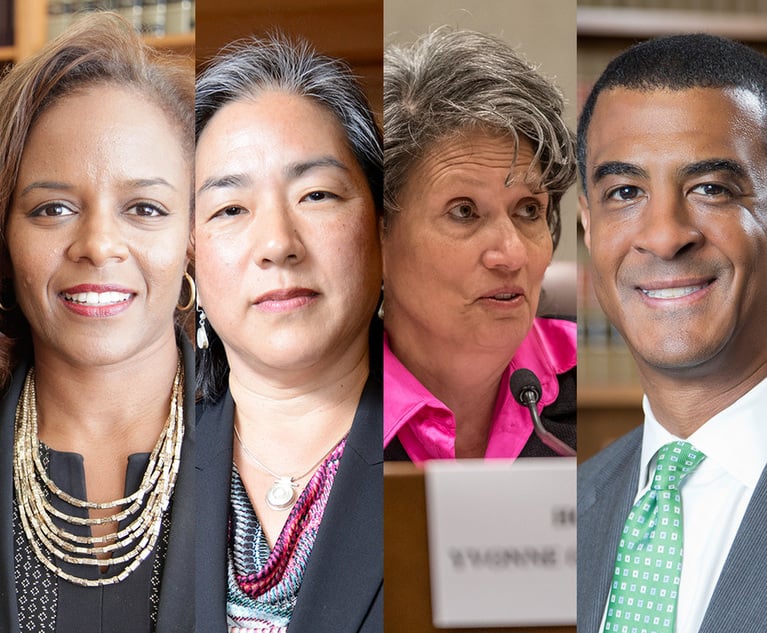
‘Listen, Listen, Listen’: Some Practice Tips From Judges in the Oakland Federal Courthouse
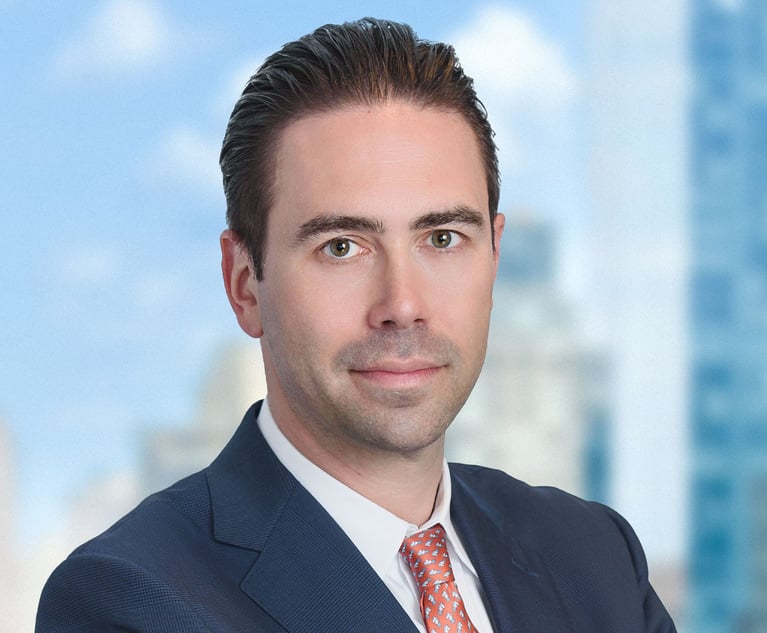
How the Court of Public Opinion Should Factor Into Litigation Strategy
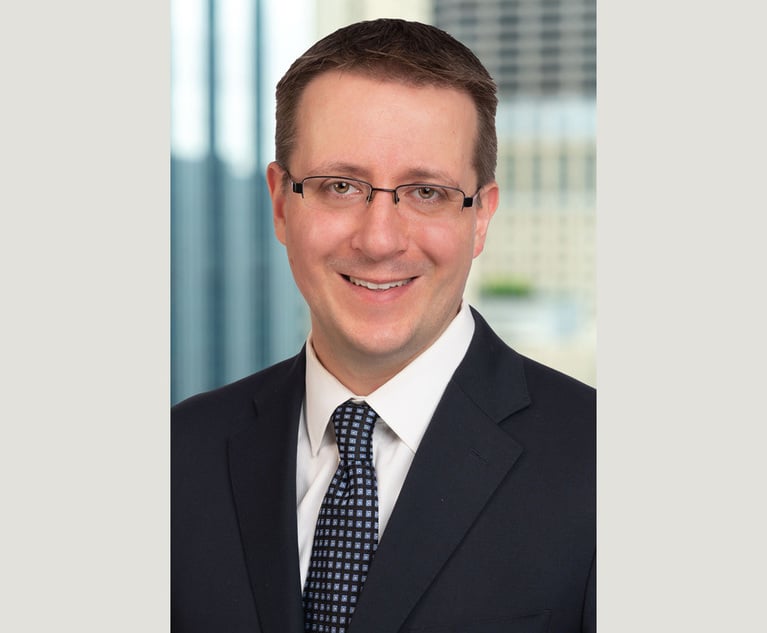
An Eye on ‘De-Risking’: Chewing on Hot Topics in Litigation Funding With Jeffery Lula of GLS Capital
Trending Stories
- 1Munger, Gibson Dunn Billed $63 Million to Snap in 2024
- 2January Petitions Press High Court on Guns, Birth Certificate Sex Classifications
- 3'A Waste of Your Time': Practice Tips From Judges in the Oakland Federal Courthouse
- 4Judge Extends Tom Girardi's Time in Prison Medical Facility to Feb. 20
- 5Supreme Court Denies Trump's Request to Pause Pending Environmental Cases
Who Got The Work
J. Brugh Lower of Gibbons has entered an appearance for industrial equipment supplier Devco Corporation in a pending trademark infringement lawsuit. The suit, accusing the defendant of selling knock-off Graco products, was filed Dec. 18 in New Jersey District Court by Rivkin Radler on behalf of Graco Inc. and Graco Minnesota. The case, assigned to U.S. District Judge Zahid N. Quraishi, is 3:24-cv-11294, Graco Inc. et al v. Devco Corporation.
Who Got The Work
Rebecca Maller-Stein and Kent A. Yalowitz of Arnold & Porter Kaye Scholer have entered their appearances for Hanaco Venture Capital and its executives, Lior Prosor and David Frankel, in a pending securities lawsuit. The action, filed on Dec. 24 in New York Southern District Court by Zell, Aron & Co. on behalf of Goldeneye Advisors, accuses the defendants of negligently and fraudulently managing the plaintiff's $1 million investment. The case, assigned to U.S. District Judge Vernon S. Broderick, is 1:24-cv-09918, Goldeneye Advisors, LLC v. Hanaco Venture Capital, Ltd. et al.
Who Got The Work
Attorneys from A&O Shearman has stepped in as defense counsel for Toronto-Dominion Bank and other defendants in a pending securities class action. The suit, filed Dec. 11 in New York Southern District Court by Bleichmar Fonti & Auld, accuses the defendants of concealing the bank's 'pervasive' deficiencies in regards to its compliance with the Bank Secrecy Act and the quality of its anti-money laundering controls. The case, assigned to U.S. District Judge Arun Subramanian, is 1:24-cv-09445, Gonzalez v. The Toronto-Dominion Bank et al.
Who Got The Work
Crown Castle International, a Pennsylvania company providing shared communications infrastructure, has turned to Luke D. Wolf of Gordon Rees Scully Mansukhani to fend off a pending breach-of-contract lawsuit. The court action, filed Nov. 25 in Michigan Eastern District Court by Hooper Hathaway PC on behalf of The Town Residences LLC, accuses Crown Castle of failing to transfer approximately $30,000 in utility payments from T-Mobile in breach of a roof-top lease and assignment agreement. The case, assigned to U.S. District Judge Susan K. Declercq, is 2:24-cv-13131, The Town Residences LLC v. T-Mobile US, Inc. et al.
Who Got The Work
Wilfred P. Coronato and Daniel M. Schwartz of McCarter & English have stepped in as defense counsel to Electrolux Home Products Inc. in a pending product liability lawsuit. The court action, filed Nov. 26 in New York Eastern District Court by Poulos Lopiccolo PC and Nagel Rice LLP on behalf of David Stern, alleges that the defendant's refrigerators’ drawers and shelving repeatedly break and fall apart within months after purchase. The case, assigned to U.S. District Judge Joan M. Azrack, is 2:24-cv-08204, Stern v. Electrolux Home Products, Inc.
Featured Firms
Law Offices of Gary Martin Hays & Associates, P.C.
(470) 294-1674
Law Offices of Mark E. Salomone
(857) 444-6468
Smith & Hassler
(713) 739-1250





